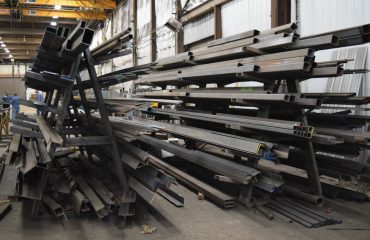body {
font-family: sans-serif;
line-height: 1.6;
}
h1, h2, h3 {
color: #333;
}
h1 {
font-size: 2.5em;
}
h2 {
font-size: 2em;
}
h3 {
font-size: 1.5em;
}
Selecting the right steel supplier can significantly impact the success of your project. From cost-effectiveness to timely delivery and quality assurance, the choice is crucial. This comprehensive guide will equip you with the knowledge to evaluate potential suppliers effectively, ensuring you find the perfect partner for your needs.
1. Assessing Steel Quality and Certifications
The foundation of any successful project is high-quality steel. Don’t compromise on this crucial aspect. When evaluating suppliers, thoroughly investigate their quality control processes. Look for certifications like ISO 9001 (quality management), ISO 14001 (environmental management), and any industry-specific certifications relevant to your needs (e.g., aerospace, automotive). Request mill test reports (MTRs) for each batch of steel to verify its chemical composition and mechanical properties align with your specifications. A reputable supplier will readily provide this information and be transparent about their testing procedures. Inquire about their rejection rate – a low rejection rate indicates robust quality control.
2. Evaluating Supplier Reliability and Delivery Performance
Consistent and timely delivery is paramount. Delays can disrupt your project timeline and lead to significant financial losses. Assess a supplier’s track record by requesting references and checking their history of on-time delivery. Investigate their logistics capabilities – do they have efficient warehousing, transportation networks, and inventory management systems? Ask about their lead times and their ability to handle both small and large orders. A reliable supplier will be proactive in communication, providing regular updates and addressing any potential delays promptly. Consider their geographical location in relation to your project site – proximity can reduce transportation costs and lead times.
3. Comparing Pricing and Payment Terms
Cost is a significant factor, but it shouldn’t be the sole deciding factor. While seeking competitive pricing is essential, avoid selecting a supplier solely based on the lowest price, as this could compromise quality or reliability. Obtain detailed quotes from multiple suppliers, ensuring they include all costs, such as transportation, handling, and taxes. Compare payment terms carefully; some suppliers may offer discounts for early payment or extended credit periods. Negotiate terms that are favorable to your business while maintaining a strong working relationship with the supplier. Consider the long-term cost implications – a slightly more expensive supplier offering superior quality and reliability might save you money in the long run by preventing project delays or material defects.
4. Understanding Supplier Capacity and Scalability
Consider your current and future needs. A supplier capable of meeting your current demand may not be able to scale to accommodate future growth. Assess the supplier’s production capacity, warehousing capabilities, and overall infrastructure. Inquire about their ability to handle fluctuations in demand and their response to urgent orders. A supplier with proven scalability will ensure you have a reliable source of steel throughout your project’s lifecycle and beyond. This is especially crucial for large-scale projects or businesses experiencing rapid growth.
5. Assessing Customer Service and Communication
Effective communication is crucial for a successful partnership. Evaluate a supplier’s responsiveness, professionalism, and willingness to address your concerns. Do they have dedicated customer service representatives? How readily do they respond to inquiries and resolve issues? A responsive and proactive supplier will foster a positive working relationship and ensure seamless project execution. Look for suppliers who offer various communication channels, such as email, phone, and online portals, to facilitate efficient information exchange. A strong customer service team can be invaluable in mitigating potential problems and ensuring a smooth transaction.
By carefully evaluating these five key areas, you can confidently select a steel supplier that meets your needs and contributes to the success of your projects. Remember to always request references and conduct thorough due diligence before committing to a long-term partnership.
SEO-Friendly Tags:
steel supplier evaluation, choose steel supplier, steel quality control, steel supplier selection criteria, steel supplier assessment




